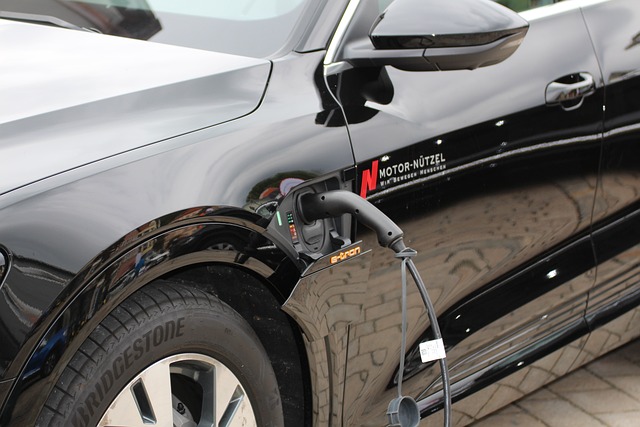Beyond Zero Emissions: Exploring the Most Sustainable Electric Vehicles
Introduction:
As the world continues to prioritize sustainability and combat climate change, the demand for electric vehicles (EVs) has surged. While all EVs contribute to a cleaner and greener future, some models go above and beyond to prioritize sustainability in every aspect. In this article, we delve into the realm of the most sustainable electric vehicles available today. These vehicles not only emit zero tailpipe emissions but also incorporate innovative features, materials, and production processes that minimize their environmental impact.
1. BMW i3: A Pioneer in Sustainable Mobility
The BMW i3 is a trailblazer in sustainable mobility, showcasing BMW’s commitment to reducing carbon footprints. The vehicle’s innovative construction features a carbon fiber-reinforced plastic (CFRP) body, making it lightweight and energy-efficient. Additionally, the interior incorporates sustainable materials like recycled plastics, natural fibers, and responsibly sourced wood. With its all-electric drivetrain and sustainable manufacturing approach, the BMW i3 sets the benchmark for environmentally conscious transportation.
2. Volkswagen ID.4: Embracing a Carbon-Neutral Future
Volkswagen’s ID.4 represents the brand’s ambitious stride towards a carbon-neutral future. Beyond being a fully electric SUV, the ID.4 aims to minimize its overall carbon emissions throughout its lifecycle. Volkswagen has implemented sustainable manufacturing practices and partnered with suppliers committed to renewable energy sources. Moreover, the ID.4’s battery pack incorporates responsibly sourced materials, ensuring the vehicle’s sustainability from production to end-of-life.
3. Polestar 2: Combining Performance and Sustainability
Polestar, Volvo’s electric performance brand, demonstrates that sustainability doesn’t mean compromising on power and performance. The Polestar 2, an all-electric fastback, utilizes vegan interior materials and implements a comprehensive recycling program for its batteries. Polestar also incorporates transparency in its supply chain, sourcing materials ethically and reducing the environmental impact of its manufacturing processes. The result is a high-performance EV that prioritizes sustainability at every stage.
4. Hyundai Ioniq 5: Sustainable Design and Innovation
Hyundai’s Ioniq 5 exemplifies sustainable design and innovation. The vehicle’s design incorporates eco-friendly materials, including plant-based plastics and recycled materials. It also features a solar roof that harnesses sunlight to generate additional electric power, further reducing its carbon footprint. With its efficient electric drivetrain and commitment to sustainable design, the Hyundai Ioniq 5 pushes the boundaries of eco-friendly transportation.
5. Tesla Model S Plaid: Advancing Sustainability with Performance
The Tesla Model S Plaid showcases how sustainability and high performance can coexist. While renowned for its acceleration and cutting-edge technology, the Model S Plaid also boasts an efficient electric drivetrain and a commitment to renewable energy. Tesla’s Supercharger network relies heavily on solar power, reducing charging-related emissions. By continuously pushing the boundaries of EV performance and sustainability, the Model S Plaid solidifies Tesla’s role as an industry leader in sustainable transportation.
Conclusion (continued):
The shift towards sustainable transportation is essential for combatting climate change and preserving our planet for future generations. The most sustainable electric vehicles of today are leading the way in redefining the automotive industry’s environmental impact. By incorporating renewable materials, responsible manufacturing processes, and innovative technologies, these vehicles demonstrate a commitment to a greener and more sustainable future.
As consumers, we play a crucial role in driving the demand for sustainable transportation options. By choosing electric vehicles that go beyond zero emissions, we actively support the advancement of sustainable practices in the automotive industry. The positive impact extends beyond the reduction of greenhouse gas emissions; it also encompasses sustainable resource management, improved air quality, and reduced dependence on fossil fuels.
It is encouraging to witness automakers’ efforts in pushing the boundaries of sustainable design, materials, and manufacturing processes. As technology continues to evolve, we can expect even greater strides in the sustainability of electric vehicles in the coming years.
In conclusion, the most sustainable electric vehicles of today pave the way for a future of cleaner transportation. By embracing these vehicles, we contribute to a significant reduction in carbon emissions and promote a more sustainable and environmentally conscious lifestyle. Let us continue to support and advocate for sustainable transportation as we drive towards a greener and more sustainable future.
